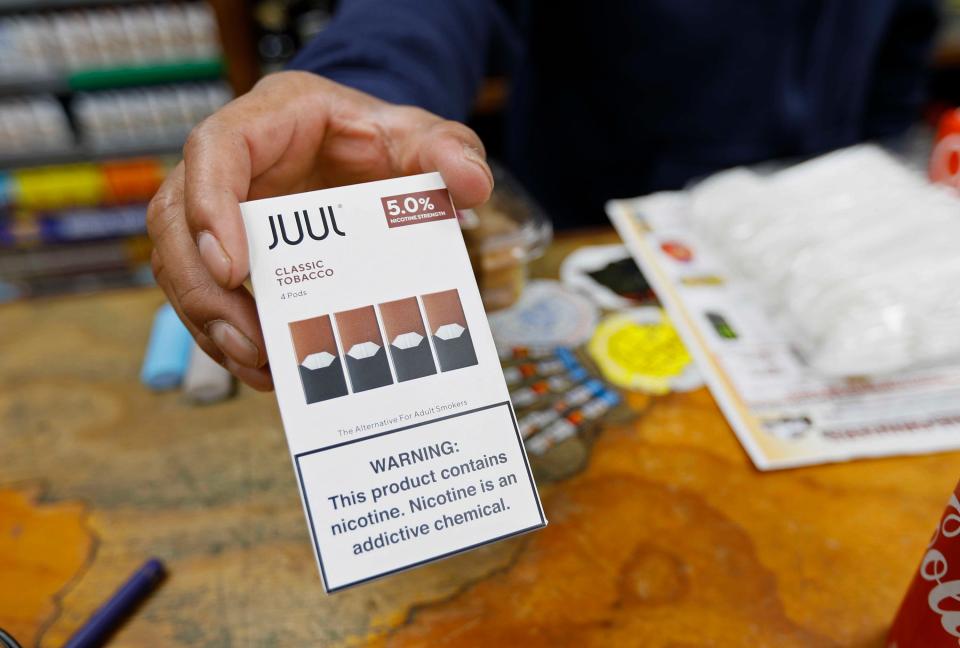Juul's appeal allows it to sell vaping devices, pods as federal court weighs FDA ban.
Vaping giant Juul Labs filed an emergency motion Monday asking a federal appeals court to block a government ban of its e-cigarettes and flavored pods.
The San Francisco-based vaping company asked the U.S. Court of Appeals for the District of Columbia to pause what it called an “extraordinary and unlawful" action last week by the U.S. Food and Drug Administration, which ordered the company to stop selling its products.
In its filing, Juul said the FDA acted on political pressure from Congress, which blames the company for the youth vaping epidemic. In denying Juul's application to remain on the market, the FDA held the company to a different standard than it did for other e-cigarette makers, the filing said.
A three-judge panel from the appeals court granted Juul a reprieve Friday, temporarily halting the FDA ban. The court must decide whether it will allow Juul to sell its products while the company appeals the FDA's decision. The FDA must file a response by July 7 to Juul's motion asking the court to hear its appeal. Juul will then have until July 12 to file a response.
On Thursday, the FDA cited "insufficient and conflicting" data in Juul's application to continue selling its vaping device and four types of liquid pods: Virginia-tobacco-flavored and menthol-flavored pods with nicotine levels of 5% and 3%.

The FDA reviewed marketing applications from Juul and hundreds of other companies amid calls from anti-tobacco groups to crack down on products that led to a surge in youth vaping in the past decade.
The company claimed in its motion that immediately removing its products from the market pending the appeal would "harm the public" as "more than two million adult smokers have switched completely from cigarette smoking because of Juul products."
In 2020, the FDA required all e-cigarette and vaping companies to submit applications to continue marketing products. The agency banned fruit- and mint-flavored juice pods used in e-cigarettes and vaping products, a ban that did not apply to menthol and tobacco-flavored products.
The FDA evaluated whether e-cigarettes would benefit public health. That might include proving adult smokers are likely to quit smoking in favor of the electronic, nicotine-delivery devices and teens are unlikely to get hooked on them.
The agency said Juul's application to sell its products lacked evidence that the chemicals used would be "appropriate for the protection of public health." Though the FDA said it had not received clinical information suggesting a hazard from using Juul's vaping device or liquid pods, the agency determined there is not enough evidence to "assess the potential toxicological risks of using the Juul products."
John Banzhaf III, a George Washington University professor of public interest law, said Juul's appeal could delay FDA's ban for weeks, even months, as the court assesses the opposing positions.
The case shows the difficulty of attempting to regulate an industry that operated with little oversight for years, said Banzhaf, who has called on tighter oversight for more than 15 years.
"We should never have allowed it to get where it is today," he said. "It's very difficult to to put Pandora back in that box."
Ken Alltucker is on Twitter at @kalltucker, or can be emailed at alltuck@usatoday.com.
This article originally appeared on USA TODAY: Juul can sell its vaping device, pods as court weights FDA ban

 Yahoo Movies
Yahoo Movies 
